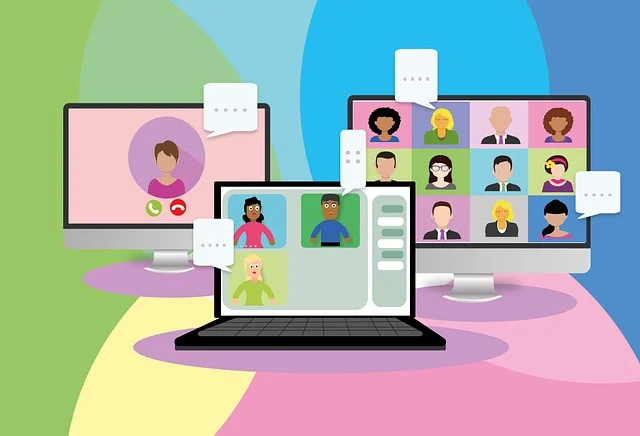4 Human Resources Tools & Software For Efficient Employee Management
Human resources tools & software are a wide range of technology solutions that help companies effectively manage their day-to-day HR activities.
HR processes are compliance-driven and are manually executed in a time-consuming and inefficient manner.
Human resources tools & software take advantage of automation opportunities and allow HR employees to save time and money and easily manage their employees.
All core HR processes, from recruitment to exit interviews, are managed by HR tools.
Companies can choose simple HR software that handles day-to-day administrative tasks like vacation management, timesheet management, and more, depending on their needs.
They can also choose software that addresses strategic HR issues like recruitment and performance management.
Few departments juggle as many tasks or manage as much information as the HR department.
The technology facilitates the tasks of recruitment, payroll, and performance evaluation while also allowing HR personnel to better align with employees across the enterprise.
What are the advantages of investing in human resources tools & software?
ALSO READ: How To Choose the Right E-Learning Software For Your Business
Automation will transform your human resources department and provide numerous benefits to the organization. Here are a few noteworthy advantages of investing in HR management tools:
Accuracy
Using automation in daily processes helps to reduce the risk of human error. An HR tool with automation provides more data-tracking and employee-management options.
While it is impossible to avoid all errors, good tools can reduce potential problems and the time and money required to correct errors.
Consistency
To ensure that your company treats all employees fairly and equally, you need consistent HR processes.
As HR regulations become more complex, these systems are becoming increasingly important for businesses of all sizes.
Saves time
Consider how much time the HR department spends on tasks that could be automated. HR management software eliminates the need for time-consuming manual processes.
Efficiency
When processes are automated, HR employees have more time available each day to focus on activities that add value to the organization, such as improving employee relationships and providing training, which can help improve employee satisfaction. Improved efficiency has an effect on the bottom line as well.
Cost
As Human resources tools and software reduce employee hours spent on busywork, you’ll likely notice savings accumulate over time, making the cost of implementing automation tools well worth the investment.
The following are essential human resources tools and software for effective employee management:
1. Human Resources Management System
HR teams handle a plethora of employee data, which is rather extensive and must be entered, stored, and retrieved in a secure and efficient way.
HR teams handle a plethora of employee data, which is rather extensive and must be entered, stored, and retrieved in a secure and efficient way. A Human Resource Management System is the best tool for safely processing such information.
An HRMS is essential for effective employee management because it allows you to store and organize data such as employee profiles, work hours, attendance records, holidays, and more.
For companies that want to simplify attendance tracking, using a dedicated workforce clock in and out app can be a valuable addition to their HRMS, enabling real-time logging of employee hours and improving overall time management.
The majority of such tools provide a core platform for HR management as well as integrations for payroll, performance evaluation, and benefits administration.
In fact, you may hear the term Human Resources Information System (HRIS), but this is not the same as HRMS.
Unlike most HRMS, an HRIS usually does not include features for talent and performance management. If you want something simpler, an HRIS might be a better option.
2. Applicant Tracking System
When you use HR digital platforms, you can better organize and speed up your recruitment. With such platforms, you can enjoy innovation and convenience that are lacking in traditional hiring methods.
For example, using a recruitment tool makes it easier to collect data about people’s skills or experience through assessments, then make data-driven shortlisting decisions, and finally decide who to hire.
Also, HR can automatically manage processes like publishing job openings, receiving and categorizing applications, and scheduling interviews. You will save time because you will not have to perform these tasks manually.
3. Performance monitoring
The number of businesses that use behavioral approaches to assess and monitor employee performance is rapidly increasing.
However, in some cases, this is still done by holding an annual meeting of departmental and HR managers, possibly to award performance bonuses.
This procedure is frequently carried out without the required objectivity, based on parameters that are not strictly linked to results or the output of individual employees.
It is critical to establish goals for individual employees and continuously monitor performance, providing open feedback and evaluation to both the manager and the employee on a regular basis.
It is then easier to convene the employee at the end of the year and present him/her with the work completed, evaluating results based on facts.
Platforms for performance management
There are several platforms available on the market that can help with this important task. They make it easier to evaluate an employee’s performance based on key performance indicators (KPIs) defined by supervisors in collaboration with the HR department and management.
These platforms enable you to examine performance and identify how an employee or the team with which he or she works can improve, as well as provide customized training to fill gaps if necessary.
Digital HR enables the detection of deficiencies in individuals’ skills and abilities, as well as the design of appropriate training that can be delivered on a regular basis in a digital format.
Regular training is often more effective for employees, particularly those at lower levels, and it can often replace traditional classroom courses.
A program of regular training in digital format, using videos and questionnaires can be shared with employees, who can provide feedback and propose changes to the content based on the tasks they carry out and the experience gained in the field.
4. Learning Management System (LMS)
A training strategy necessitates the smooth execution of numerous processes. In the modern workplace, it is possible to simplify the distribution of educational courses and training sessions to your teams.
You can benefit from automations such as adding users to courses, sending notifications, evaluating, and reporting with the help of an LMS.
This SaaS platform also allows you to train your teams either in person or online. An LMS is an ideal HR tool for assisting with a variety of HR processes such as preboarding, onboarding, employee upskilling or reskilling, and more.
To better meet the needs of your people, most LMSs offer mobile learning integrations, making training available anytime, anywhere, asynchronous or synchronous.
Furthermore, with microlearning, gamification, various content formats (PDFs, videos, animations), ready-made courses, and web conferencing integrations, this critical component of an effective learning strategy increases employee engagement.
Self-directed learning automates training and greatly simplifies HR processes. Overall, this human resources tools and software can assist you in the following ways:
- Training material organization and delivery
- Creating tasks to help employees improve their skills
- In assessing progress
Overall, human resource departments can design, monitor, and measure employee training and development in a risk-free and timely manner.
Conclusion
Human resources tools and software can play an important role in a company’s digital transformation. The benefits of introducing digital platforms are self-evident.
Recruitment, performance management, payroll and bonus management, and staff training are all tasks that can be best managed by digitizing processes.
The process of digital transformation of HR management necessitates a shift in the mindset of HR managers, who are called upon to become skilled partners for top managers and department managers, because they have information and tools that can make personnel management much more effective, thereby assisting in the achievement of the company’s goals.






